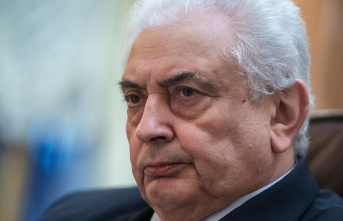Protests in France against the government's actions on President Emmanuel Macron's controversial pension reform continued on Friday. The morning after a call from the CGT union, there were blockades and obstructions to commuter traffic on the city motorway in Paris.
In other cities such as Rennes and Brest, protesters also blocked roads at times, the newspaper Le Parisien reported. High schools and universities have sometimes been blocked by protesting young people, as in Clermont-Ferrand and Lille. Unions are planning another nationwide day of strikes and protests next Thursday. Because of their actions, the government has to face a vote of no confidence on Monday.
Some refineries announced renewed or extended strikes on Friday, but the supply of fuel to the filling stations has not come to a standstill so far. Striking rubbish collectors in Paris, meanwhile, have been summoned by the police prefect to begin clearing around 9,000 tonnes of piled rubbish from the streets. The disabilities in local public transport and the French railways remained manageable on Friday. In Toulon in southern France, however, demonstrators occupied train tracks and brought train traffic to a standstill, the broadcaster BFMTV reported. Demonstrators also stormed the train station in Bordeaux.
no-confidence vote on Monday
On Thursday afternoon, the French government decided at short notice to push through the controversial pension reform without the actual vote in the National Assembly. She resorted to a special article in the constitution to implement President Macron's most important reform project. This increases the retirement age from 62 to 64 years. The concern was that not enough MPs would agree to the reform.
The government is now expecting a vote of no confidence on Monday. Two no-confidence motions were tabled by Friday within the prescribed time limit. However, it is considered unlikely that the government of Prime Minister Elisabeth Borne will be overthrown as a result.
A cross-party motion of no-confidence was tabled by the small centre-centre Liot party. This could be supported by the left alliance, the parties said on Friday. The right-wing national Rassemblement National submitted its own motion, which is unlikely to be supported by any of the other opposition parties. The question is whether some MPs from the conservative Républicains, who had supported the reform in principle, will vote for the cross-party motion and possibly also right-wing national MPs.











